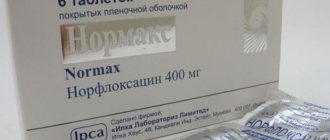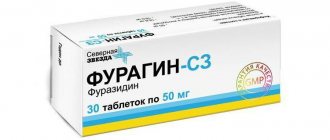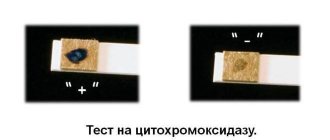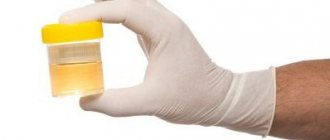Classification of pyelonephritis
There are 2 main forms of the disease:
- Primary pyelonephritis . It develops in the absence of diseases that provoke congestion in the kidneys and in the normal anatomical structure of the urinary system.
- Secondary pyelonephritis . Occurs with a pathological change in the structure of the bladder, ureters and kidneys against the background of congenital anomalies or with the development of any disease leading to stagnation of urine (nephrolithiasis, diabetes mellitus, etc.).
In acute pyelonephritis, inflammation of the soft tissues spreads rapidly. The pathological process continues for six months, after which the disease becomes chronic. If we talk about chronic pyelonephritis, then in this case the symptoms gradually increase, there are stages of remission and periods of exacerbation, which can last 6 months.
If we consider pyelonephritis according to certain characteristics, we can distinguish several types of the disease:
- According to the number of affected kidneys: unilateral and bilateral. In the first case, the prognosis is more favorable. A healthy kidney takes on all the necessary functions. With bilateral pyelonephritis, a severe course of the disease is observed. In this case, complications often develop.
- According to the routes of penetration: hematogenous and urinogenic. Acute forms most often develop with hematogenous damage, when inflammation is present mainly in the cortex. Chronic forms of pyelonephritis can be attributed to the urinogenic type of ascending infection, when microorganisms penetrate from the lower urinary tract.
- According to the structure of the urinary tract: obstructive and without obstruction. Obstruction occurs when pathogenic microorganisms penetrate the kidney, which causes an inflammatory process, and, accordingly, swelling and narrowing of the lumen. In this case, pyelonephritis develops faster and intoxication of the body is noted, which is associated with impaired urine output.
- By type of inflammatory process: serous and purulent. The serous form of the disease occurs in 70% of cases and is characterized by thickening and swelling of the kidney. In the area of the parenchyma there are a large number of foci of infiltration. A transition to a purulent form of the course is possible. In this case, multiple suppurations occur, which compress the kidney tubules.
Contraindications to taking medications
Almost all medications are dangerous, especially if taken uncontrolled. Since antibiotics are required for pyelonephritis, the risk of self-medication increases several times.
Only the attending physician should determine the advisability of taking the drug, otherwise irreparable harm can be caused to the body. The article above describes in detail what medications you need to take to treat the disease, as well as what contraindications they have.
The disease can be cured only with a reasonable approach to therapy, the correct selection of medications and their dosage regimen.
Prevention
The main recommendations for prevention are to eliminate all provoking factors. Hypothermia should not be allowed; it is important to eat properly and normalize your daily routine. A full 8-hour sleep will help prevent many pathological conditions.
To prevent the development of the disease, you need to ensure that there are no infections in the body. Pyelonephritis develops because the outflow of urine is disrupted due to the presence of pathogenic microflora. Prevention in this case should be aimed at eliminating all violations.
It is important to drink as much water as possible
You can prevent the inflammatory process in the kidneys by simply following simple recommendations:
- genital hygiene is important;
- cessation of alcoholic beverages and smoking;
- regular physical exercise;
- taking vitamin and mineral complexes;
- emptying the bladder in a timely manner;
- regular testing.
To prevent disease in children, many people use traditional medicine. But you should not engage in such self-medication without consulting your doctor. Regular examinations, timely tests, following simple recommendations - all this will help prevent the development of the disease.
Treatment recommendations
Drug therapy for pyelonephritis is a long and labor-intensive process. Prevention of complications and prognosis depend on the effectiveness of the treatment. The success of conservative treatment of the disease depends on whether the drug is selected correctly and on the patient’s compliance with the doctor’s recommendations.
When choosing a drug for the acute form of pyelonephritis that develops primarily, you should be guided by the following rules:
- Use antibacterial and antimicrobial agents only after determining the sensitivity of the pathogen.
- If the pathogenic flora has not been identified, then drugs with a broad spectrum of action are used.
- If the disease is viral, antibiotics are not prescribed.
- To exclude the possibility of relapse, repeated drug treatment is prescribed.
- At the same time, detoxification and anti-inflammatory drugs should be taken.
- In the acute form of the disease, the use of antibiotics helps prevent the disease from becoming chronic.
The secondary form of pyelonephritis can only be treated with surgery. Drug therapy is prescribed only during the rehabilitation period.
In the chronic form of the disease, antibiotics are prescribed for 6-8 weeks for adults and 3-4 weeks for children. Drugs are prescribed only after the causative agent of the disease has been identified.
Herbal preparations
Herbal preparations occupy a special place in the complex therapy of pyelonephritis. One of the popular remedies for problems with the urinary system is Canephron . The medicine is based on herbal ingredients: lovage, centaury herb, rosemary leaves. Canephron for chronic pyelonephritis gives good results in restoring kidney function. For children, the product is offered in the form of an oral solution. The product effectively relieves inflammation and eliminates spasms.
If it is impossible to carry out full antibacterial therapy, a single dose of Monural and adequate therapy using herbal preparations are provided. The following products have proven themselves to be effective:
- Uroflux . It has an antiseptic effect, suitable for the treatment of pyelonephritis and inflammation of the bladder. The product has a slight diuretic effect and helps restore the functions of the urinary organs. Among the components of the collection: bearberry, birch leaves, horsetail, willow bark, licorice root, etc.
- Phytolysin . Available in the form of a paste for preparing a suspension. The drug is suitable for the treatment of pyelonephritis, but is not recommended for use in glomerulonephritis. You will have to refrain from using the drug in case of heart failure, pathological kidney dysfunction and phosphate urolithiasis. The drug development has a diuretic effect and accelerates the elimination of other drugs, which should be kept in mind during therapy.
It is useful to take herbal decoctions containing the following ingredients: elderberry, elecampane, birch leaves, corn silk, wheatgrass, chamomile.
Drugs for pyelonephritis and their features
How to treat kidney pyelonephritis? Recommended medications include antibiotics, drugs with antimicrobial activity, anti-inflammatory drugs and immunostimulants. As additional measures, herbal and homeopathic complexes are used, as well as drugs whose effectiveness is aimed at improving local tissue trophism.
The most effective antibacterial drugs for pyelonephritis:
1. Respiratory fluoroquinolones - only first and second generation antibiotics are used. The active substances included in the preparations are low toxic to the human body and have a long half-life:
- "Tsiprolet"
- "Tsiprobay"
- "Flexid"
2. Cephalosporins - concentrated in kidney tissue and urine. They are moderately nephrotoxic and well tolerated by patients:
- "Quadroceph"
- "Zinnat"
3. Carbapenems are reserve antibacterial agents. Used only when other drugs do not give the desired result:
- "Imipenem"
4. Aminopenicillins - used only when sensitive flora is identified. Contraindicated for the treatment of primary forms of the disease in the acute period:
- "Amoxiclav"
- "Flemoxin"
5. Aminoglycosides - prescribed for severe forms of pyelonephritis. Used only in stationary conditions in the form of injections:
- "Gentamicin"
- "Amikacin"
6. Fosfomycins - prescribed to pregnant women and children to prevent the development of relapses of the disease. Advantages: single use and maximum therapeutic effect, despite the fact that the active substances are practically not absorbed into the bloodstream:
- "Monural"
During pregnancy and childhood, pyelonephritis is also treated with medications. The doctor prescribes drugs that have a gentle effect on the body and do not have a negative effect on the fetus. The main medications for kidney pyelonephritis in women during pregnancy are Oxacillin and Ampicillin. Among the acceptable drugs for pediatric patients, it is recommended to use aminoglycosides (Netilmecin) and cephalosporins (Tseporin and Suprax).
The course of treatment for pregnant women and children is 10-14 days. Antibacterial therapy is necessarily supplemented with antispasmodics – “Baralgin”, “No-shpa” and antimicrobial agents – “5-NOK”. To alleviate the symptoms of the disease, it is recommended to take sedatives, vitamin complexes and desensitizers - Tavegil and Diazolin.
To increase the effectiveness of antibacterial drugs, medications are prescribed that accelerate blood circulation in the kidney area. 10-day therapy is enough, after which the result will be noticeable.
Diuretics are required to remove fluid from the body. Otherwise, stagnation in the kidney area is possible, which will only aggravate the course of the pathological process. Surgical therapy for pyelonephritis is carried out only when there are inflammatory processes that develop against the background of blockage of the ureter with a stone. As a rule, operations account for only 20-25% of cases.
What groups of antibiotics are used for kidney inflammation?
The main part of the treatment of kidney pyelonephritis is taking antibacterial drugs, since in most cases the cause of this disease is bacterial infection. Medicines in this group are prescribed by a qualified doctor after receiving the results of the patient’s laboratory tests.
- Cephalosporins - these drugs have a detrimental effect on most known strains of bacterial infection. However, they are considered relatively safe medications and do not have a toxic effect on the human body. For kidney pyelonephritis, the following drugs are prescribed - Cefaclor, Tamycin, Suprax, Cifran, Cephalexin.
- Penicillins - their negative effects apply to gram-positive and gram-negative types of microorganisms. Medicines of this series do not impede the functioning of the urinary tract, and therefore can be safely prescribed even to pregnant women. The following drugs will help cure the pathology: Amoxicillin, Amoxiclav, Ampicillin.
- Aminoglycosides - similar drugs are used to treat acute pyelonephritis. They have a very strong antibacterial effect and quickly destroy pathogenic microflora. Their only disadvantage is increased nephrotoxicity. Since aminoglycosides have a negative effect on the kidneys, medications in this group should not be prescribed to elderly patients and pregnant women. The names of the drugs are Gentamicin, Netilmicin and Amikacin.
- Macrolides - effectively eliminate gram-positive infections and chlamydia. Particular attention should be paid to the fact that these antibacterial agents are recognized as the safest of all listed. It is recommended to take Tetraolean, Roxithromycin, Vilprafen, Azithromycin for pyelonephritis.
- Carbapenems are representatives of antibiotics that belong to drugs with a wide range of bactericidal effects. Imipinem is considered the most modern and popular medicine of this group.
- Lincosamines - these drugs do an excellent job of destroying coccal microorganisms (streptococcus, staphylococcus). It is for this reason that they are often taken in combination with stronger antibiotics - aminoglycosides. The most well-known drugs in the series are Lincomycin and Clindamycin.
- Fluoroquinolones are well suited for the treatment of acute forms of kidney inflammation. Thanks to the power of these medications, the patient’s recovery occurs very quickly, and within a few days the unpleasant symptoms of the disease disappear. Names of group representatives: Levofloxacin, Nolitsin, Moxifloxacin.
So, what antibiotics are used for pyelonephritis?
The drugs of choice are fluoroquinolones.
Ciprofloxacin 500 mg 2 times a day, duration of treatment 10–12 days.
Levofloxacin (Floracid, Glevo) 500 mg once a day, duration 10 days. Norfloxacin (Nolicin, Norbactin) 400 mg 2 times a day for 10-14 days.
Ofloxacin 400 mg 2 times a day, duration 10 days (in low-weight patients a dosage of 200 mg 2 times a day is possible).
Alternative Medicines
If for some reason the prescription of the above antibiotics for pyelonephritis is impossible, the regimen includes drugs from the group of 2-3 generation cephalosporins, for example: Cefuroxime, Cefixime.
Aminopenicillins: Amoxicillin/clavulanic acid.
Traditional therapy to help
Any medicine for kidney pyelonephritis in adults helps to cope with the causes of the disease and eliminates symptoms. In order for the positive result of the therapy to occur faster, it is recommended to treat pyelonephritis in a comprehensive manner. Folk remedies are widely used to treat children and pregnant women, when it is extremely undesirable to use potent medications.
For acute pyelonephritis, it is recommended to use the following folk recipes:
- Propolis . Mix 10 g of propolis with butter (100 g). Take 1 tsp. 2-3 times a day for 2-3 weeks.
- Clay (do not use if the form is purulent!). Dilute the clay in warm water and leave for 15-20 minutes. Apply the heated mixture to the skin at 45 degrees to the area of the affected kidney. After 30 minutes, remove the clay from the skin with warm water. The course of treatment is 15 procedures.
In the chronic form of pyelonephritis, falconation is effective. You need to drink 2-3 liters of liquid rich in vitamins and minerals per day. It is effective to drink mineral water, fruit drinks and compotes. Among the most effective juices for pyelonephritis are apple, grape, cranberry and pumpkin.
It is imperative to adhere to proper nutrition - limit the amount of salt to 2-3 g per day, avoid smoked meats and marinades, and exclude fatty fish and meat from the diet. Every day you need to drink at least 2 liters of liquid. Fermented milk products should be included in your daily menu.
List of the most effective drugs
Despite the many different medications used to treat pyelonephritis, only a few are more commonly prescribed. The list of the most effective means is presented in the table.
| Medicine | At what age is it approved for use? | Dosage | Adverse reactions | Contraindications |
| ANTIBIOTICS | ||||
| Tsiprinol | 18 years | 500-750 mg twice a day | dyspepsia, abnormal blood count, rash | individual intolerance, childhood, pregnancy, renal failure |
| Flexid | 18 years | 500-750 mg 1 time/day | nausea, heartburn, headaches, insomnia | allergies, tendon damage, epilepsy |
| Ceftriaxone | From the first days of life | In adults and children over 12 years of age: 1-2 g/day parenterally For newborns: 20-75 mg/kg. | diarrhea, vomiting, stomatitis | pregnancy in the first trimester, individual intolerance |
| Monural | 5 years | The drug is taken once for 5-18 years: 2g after 18 years – 3g | nausea, heartburn, urticaria | severe renal failure, allergies |
| PLANT COMPLEXES | ||||
| Canephron N | 1 year | Adults: 2 tablets three times a day. Schoolchildren: 25 drops 3 times a day, Up to 7 years - 15 drops three times a day | allergic reactions | exacerbation of peptic ulcer, hypersensitivity to the components of the drug |
| Monurel Previctist | 18 years | 1 tablet at night | stomach disorders | pregnancy, allergies |
| IMMUNOMODULATORS | ||||
| Uro-Vaskom | 4 years | 1 capsule daily | headaches, dyspepsia | individual intolerance |
The duration of use and dosage of medications for pyelonephritis are selected depending on age, activity of the process, the presence of somatic pathology and complications of the underlying disease.
Prevention means
Before treating kidney pyelonephritis with tablets, it is recommended to undergo a comprehensive diagnosis, which includes a CBC and a general blood test (general blood and urine test), a urine test according to Nechiporenko, a test according to Zimnitsky and ultrasound. Without fail, the doctor refers the patient to excretory urography and voiding cystography. Girls and women must consult a gynecologist to rule out the presence of sexually transmitted infections that have a similar clinical picture.
When primary symptoms of pyelonephritis appear (pain in the lower abdomen, frequent urination, increased body temperature) or after the main therapy has been completed, the doctor recommends taking preventive medications. To support the body, Monural, Tsiprolet or Nolitsin are prescribed. They should be taken for a long period, which is indicated by the doctor.
For 2 years after diagnosing the acute form of the disease, it is recommended to take Normax, Tsiprinol and Cephalixin. These drugs are indispensable for preventing relapses of pyelonephritis. If no activity was detected during this period, then the use of medications can be stopped.
There is no universal drug for pyelonephritis yet. That is why the doctor prescribes complex therapy, which includes drugs with varying degrees of activity and a wide spectrum of action. In the absence of timely treatment, there are high risks of developing serious complications of pyelonephritis: kidney abscess, carbuncle, pyonephrosis.
How does therapy work?
This disease is combated through the use of the following drugs:
- Use of analgesics. Most often these are combination medications that include analgesic and antispasmodic components. The use of non-steroidal anti-inflammatory drugs is not recommended due to their nephrotoxicity.
- Treatment with antipyretic drugs. As a rule, Paracetamol is prescribed. By the way, in fairly high doses (up to 1 thousand milligrams) it is quite capable of relieving pain.
Other medicines
Treatment does not end with the fight against bacteria - it is equally important to relieve the symptoms of inflammation and intoxication, as well as improve blood circulation in the kidneys.
To remove toxins, intravenous drugs are used, for example, rheosorbilact, as well as intestinal sorbents. It is equally important to suppress inflammation. For pyelonephritis, paracetamol and nimesulide are prescribed for these purposes.
Also, this disease requires drugs that improve vascular tone (for example, troxevasin) and heparin to reduce blood clotting. Strong diuretics can also be useful, with the help of which they perform so-called renal gymnastics.
Instructions for use of diuretics
Diuretics are diuretic medications. Prescribed for pyelonephritis when, in the presence of clear symptoms of the disease, a diet with limited salt intake and drinking regimen does not lead to effective emptying of the bladder. And these medications are also used in cases of severe swelling to remove accumulated fluid. Very common medications in this case are Furosemide and Lasix.
Furosemide is prescribed intravenously in the form of injections exclusively for concomitant diseases that interfere with the absorption of the drug within the intestine, as well as when an urgent effect from the administration of the drug is required. The initial dose of the drug during intravenous injection is 40 milligrams, after which it is recommended that in case of insufficient urinary excretion, switch to oral forms of use of the drug. The dosage must be prescribed by a doctor, because it depends on the nature of the severity of edema, arterial concomitant hypotension and other factors.
In combination with the use of diuretics in the presence of pyelonephritis, specialists recommend hemodialysis along with hemosorption, plasmapheresis, and also taking a solution of potassium, sodium and calcium salts to prevent disturbances in water and electrolyte balance. As the disease indicators improve, doctors gradually prescribe weak diuretics to patients; for example, after Furosemide, they recommend switching to lighter medications or traditional methods (tincture of parsley root).
Herbal remedies for the treatment of pyelonephritis
As maintenance therapy for pyelonephritis in the remission stage, herbal medicines that have an antiseptic and mild diuretic effect are often prescribed. The kidney collection includes:
- St. John's wort shoots;
- bearberry;
- parsley rhizome;
- series;
- strawberry leaves;
- lovage;
- violet;
- sage.
Long-term use of the drug is possible as a decongestant, uroseptic therapy, but regular monitoring of urine tests is recommended (once every 3 months).
Sources used:
- https://uromir.ru/nefrologija/pielonefrit/lechenie-u-zhenshhin-preparaty.html
- https://pochkizdrav.ru/nefrit/lekarstva-ot-pielonefrita-pochek.html
- https://tvoyapochka.ru/lechenie/lechenie-pielonefrita
- https://vpochke.ru/nefrit/tabletki-ot-pielonefrita.html
Medicines to relieve pain and inflammation symptoms
Pyelonephritis is an infectious kidney disease. In this case, it is extremely important to use anti-inflammatory drugs. Their mechanism of action is based on blocking the formation of specific chemical compounds that cause pain, fever, and tissue swelling. Thanks to these medications, the negative symptoms of pyelonephritis are alleviated, which significantly reduce the quality of life: chills, aches in the joints and muscles, headache.
To eliminate severe tissue edema, antihistamines are used. The targets for the action of these drugs are specific tissue mast cells containing histamine. Blocking its action significantly reduces the severity of inflammatory symptoms.
Anti-inflammatory drugs - table
| Drug name | Active substance | Release form | Indications | Contraindications | Permissible age for prescribing the drug | Price |
| Nurofen | Ibuprofen |
| Pain syndrome of various types |
| 6 years | From 83 rubles |
| Voltaren | Diclofenac sodium |
| Pain syndrome of various types |
| 6 years | From 112 rubles |
| Movalis | Meloxicam |
| Pain syndrome of various types |
| 18 years | From 460 rubles |
| Diclofenac | Diclofenac sodium |
| Pain syndrome of various types |
| 6 years | From 14 rubles |
| Ibuprofen | Ibuprofen |
| Pain syndrome of various types |
| 6 years | From 17 rubles |
| Indomethacin | Indomethacin |
| Pain syndrome of various types |
| 1 year | From 12 rubles |
| Diazolin | Mebhydrolin | Dragee | Allergic reactions |
| 3 years | From 44 rubles |
| Suprastin | Chloropyramine |
| Allergic reactions |
| 3 years | From 224 rubles |
Drugs to relieve symptoms of inflammation - photo gallery
Nurofen is an effective anti-inflammatory drug
The drug Movalis is a modern anti-inflammatory drug with a minimum of side effects
Diclofenac relieves pain, fever and inflammation
Suprastin blocks the effects of histamine










